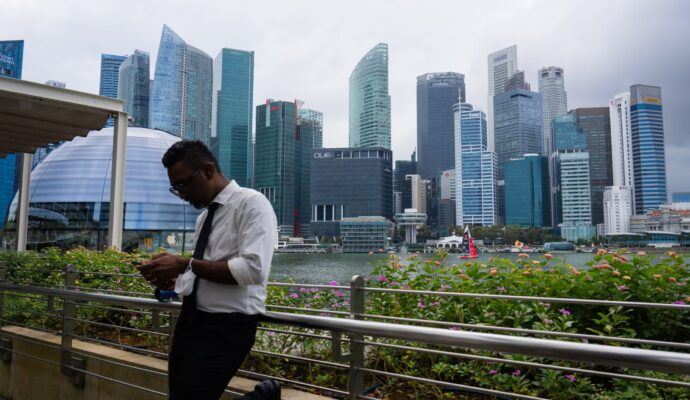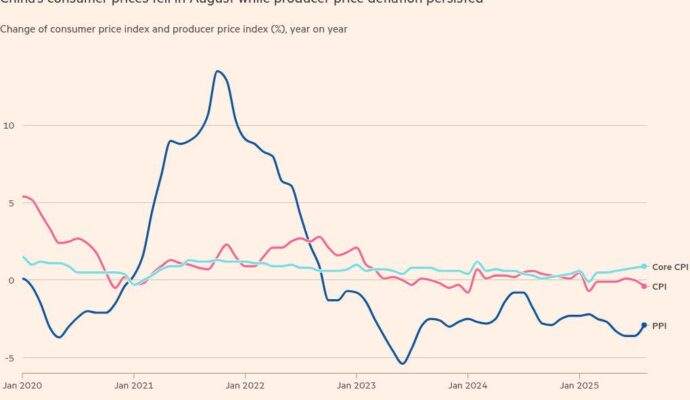Two weeks before a high-profile immigration raid on its facilities in Georgia, Hyundai Motor’s chair was in Washington with a host of South Korean business magnates and US executives to trumpet their countries’ “manufacturing renaissance partnership”.
“Just as US support helped Korea rise from the ruins of war to become a manufacturing powerhouse, it is now our turn to contribute to America’s industrial revival,” South Korea’s leftwing President Lee Jae Myung told a reception held to celebrate Korean companies’ pledge of $150bn in new investment in the US.
Now the backslapping is over. A raid on a battery plant being built by Hyundai and fellow South Korean conglomerate LG in Georgia has taken the shine off their US expansion plans. US authorities arrested 475 workers, including hundreds of South Korean nationals, in last week’s raid.
Hyundai’s profits were already falling due to tariffs imposed by US President Donald Trump, who is also withdrawing generous subsidies for electric vehicles. All this comes as the carmaker suffers mounting industrial unrest at home.
“Hyundai is facing a perfect storm of political risk,” said Lee Hang-koo, a researcher at the Korea Automotive Technology Institute.
The US setbacks are particularly painful for Chung Eui-sun, Hyundai’s third-generation leader, who has been prominent among his country’s tycoons in expanding its economic relationship with America.
Chung made public appearances with then-president Joe Biden in 2022 to announce the construction of a $5.5bn EV plant in Georgia, and with Trump in March to say he would increase Hyundai’s total investment in the US to $21bn between 2025 and 2028.
Chung raised that to $28bn when he was in Washington last month for a summit between Trump and Lee.
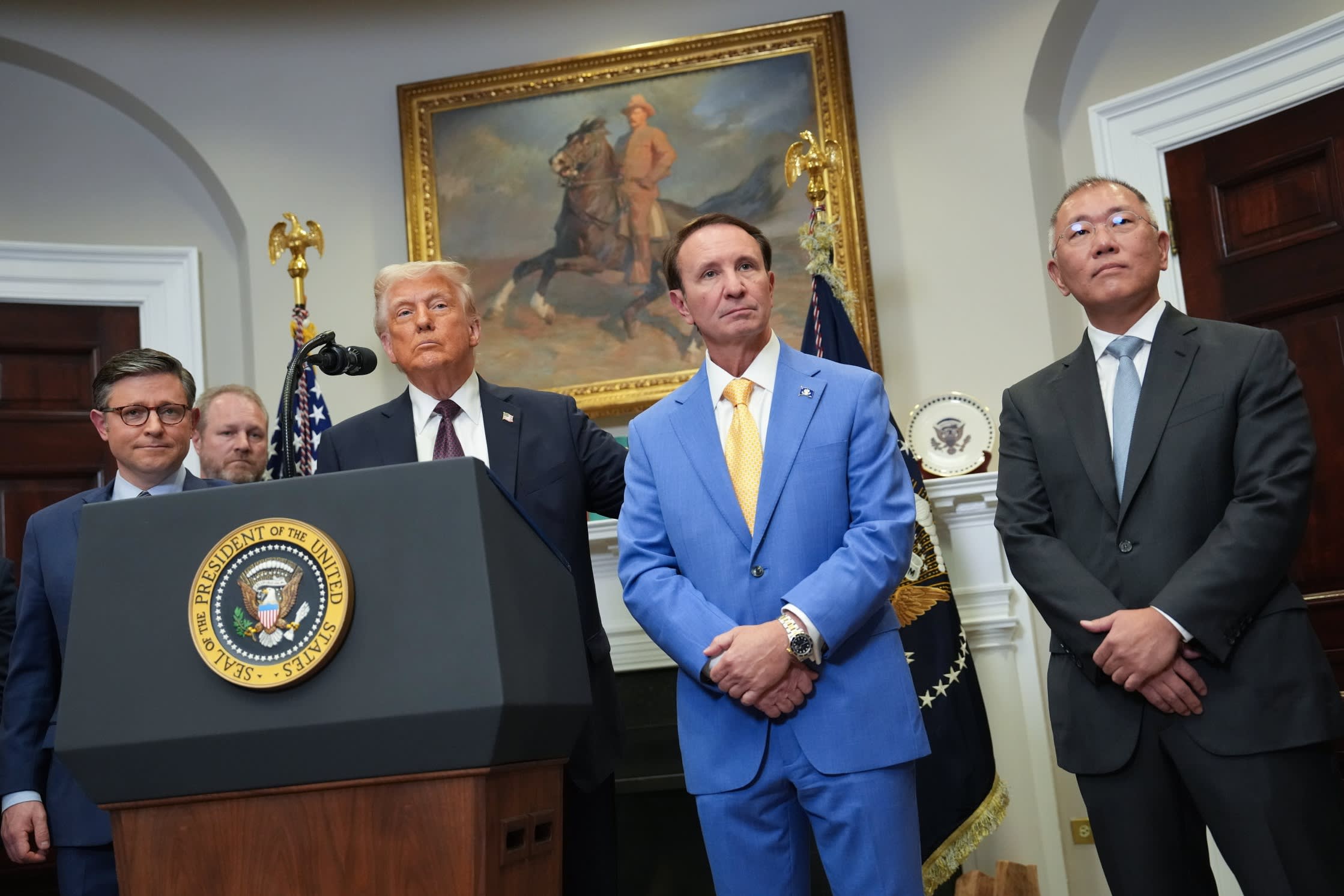
Chung, who became executive chair of the group in 2020, is widely credited with overseeing a successful transition to EVs while increasing global sales of hybrid and internal combustion engine cars. Together with sister companies Kia and Genesis, Hyundai in 2022 became the world’s third-largest carmaking group by sales.
In July, Hyundai reported a 22 per cent year-on-year drop in second-quarter profit, as US car tariffs of 25 per cent that came into force in April began to bite.
There was relief in Seoul at the end of July when the Trump administration agreed in principle to lower threatened “reciprocal tariffs” on South Korea from 25 to 15 per cent, the rate imposed on rival car exporters in Europe and Japan.
Unlike Tokyo, however, Seoul is yet to sign off on a deal. While tariffs on Japanese cars are set to be reduced to 15 per cent next week, those on South Korean cars will remain at 25 per cent.
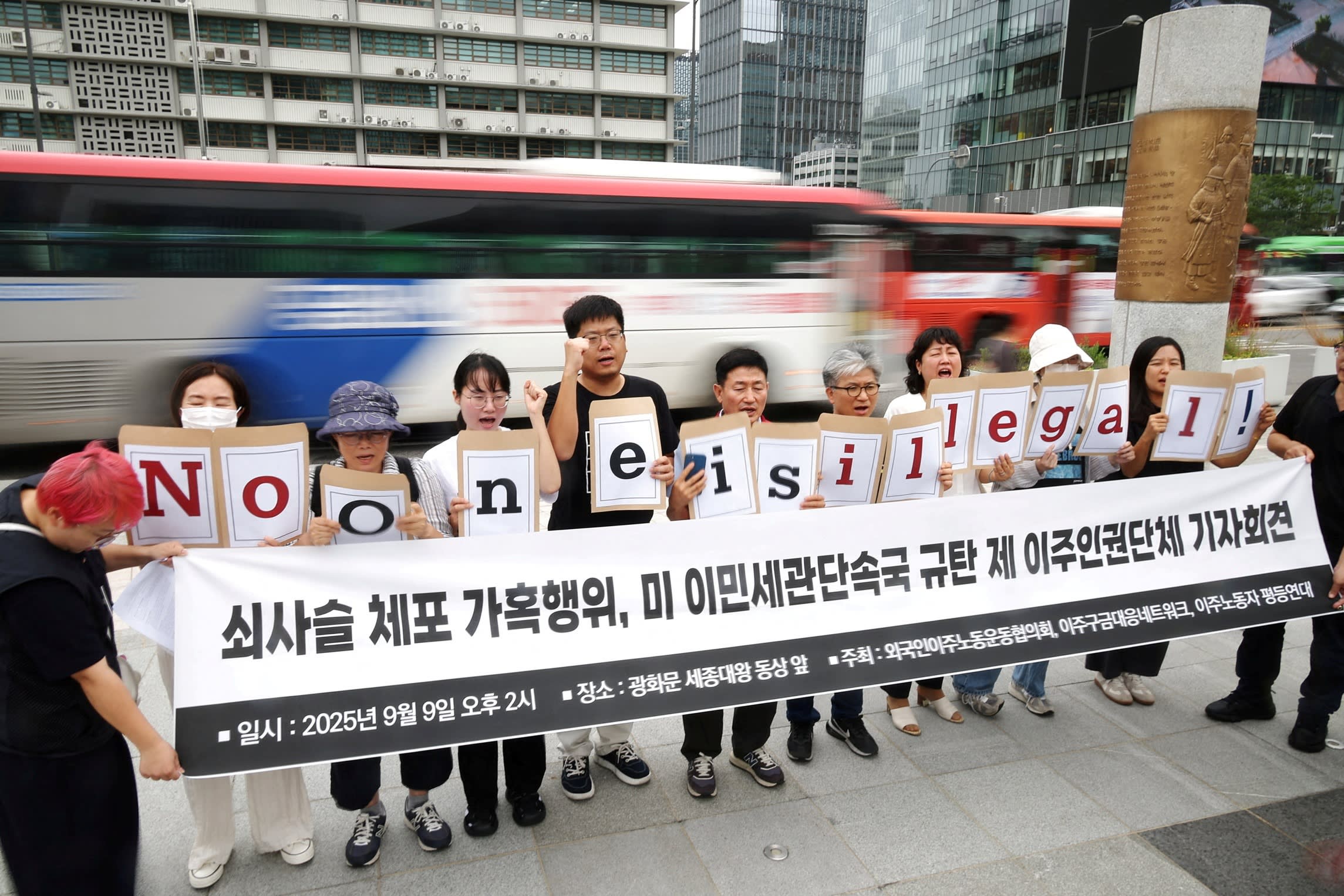
Lee Ho-geun, a professor of automotive technology at Daeduk University, said even a 15 per cent duty would reduce South Korean exporters’ competitiveness. Until this year, they had enjoyed a 2.5 percentage-point tariff advantage against Japan under the US-Korea Free Trade Agreement.
“Hyundai is facing an uphill battle against the Japanese in the US, and the battle will be worse day by day,” he said.
The South Korean group will also lose out when Trump withdraws at the end of this month a Biden-era consumer tax credit of up to $7,500 for each EV purchase, the one area in which analysts say Hyundai has a clear competitive edge over Japanese rivals.
“The withdrawal of the tax credits will deal a bigger blow to their EV sales than the tariffs,” said Lee Hang-koo from the automotive technology institute.
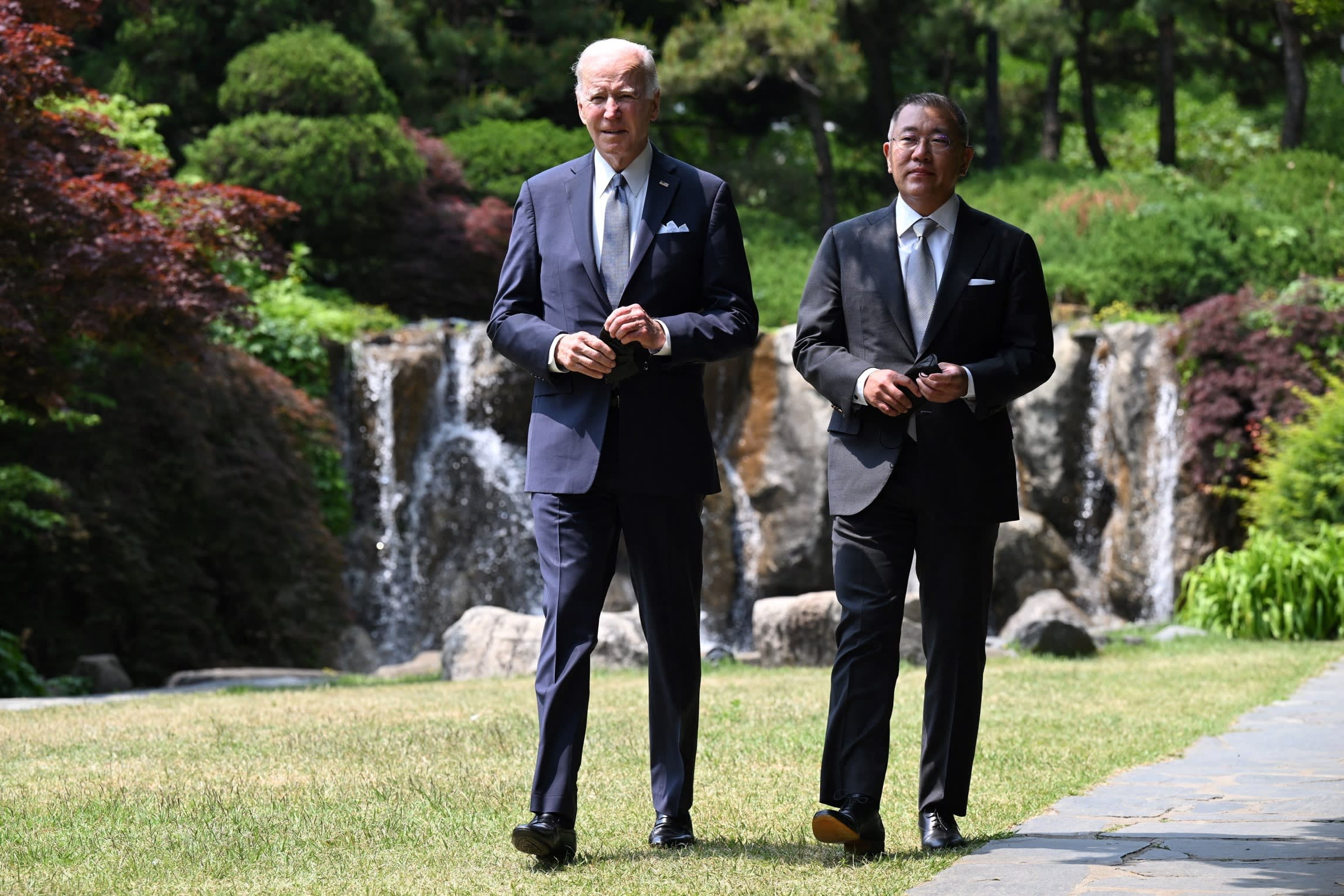
“Hyundai needs to find alternative markets, but this won’t be easy” because of falling demand in Europe, competition from local manufacturers in India and from Japanese carmakers in south-east Asia as well as pressure from China’s EV giants, said Angela Hong, an analyst at Nomura.
Meanwhile, Hyundai’s increasing commitment to the US is stirring unease among workers at home, who worry about the company’s long-term commitment to domestic production.
Last month, lawmakers from President Lee’s ruling leftwing party passed legislation to empower unions in disputes with company management. Businesses fear the legislation — dubbed the “yellow envelope” law for the packets used to donate funds to laid-off autoworkers in 2014 — will encourage higher pay and more industrial action.
Hyundai on Tuesday reached a collective bargaining agreement with full-time workers who last week began heir first strike in seven years.
The yellow envelope law, due to take effect next year, could also raise labour costs by empowering subcontracted workers.
Yoon Sang-sup, a member of a union representing Hyundai’s subcontracted workers, said: “Now that the yellow envelope law has been enacted, we will ask Hyundai to provide us with the same wages and welfare benefits as regular workers.”
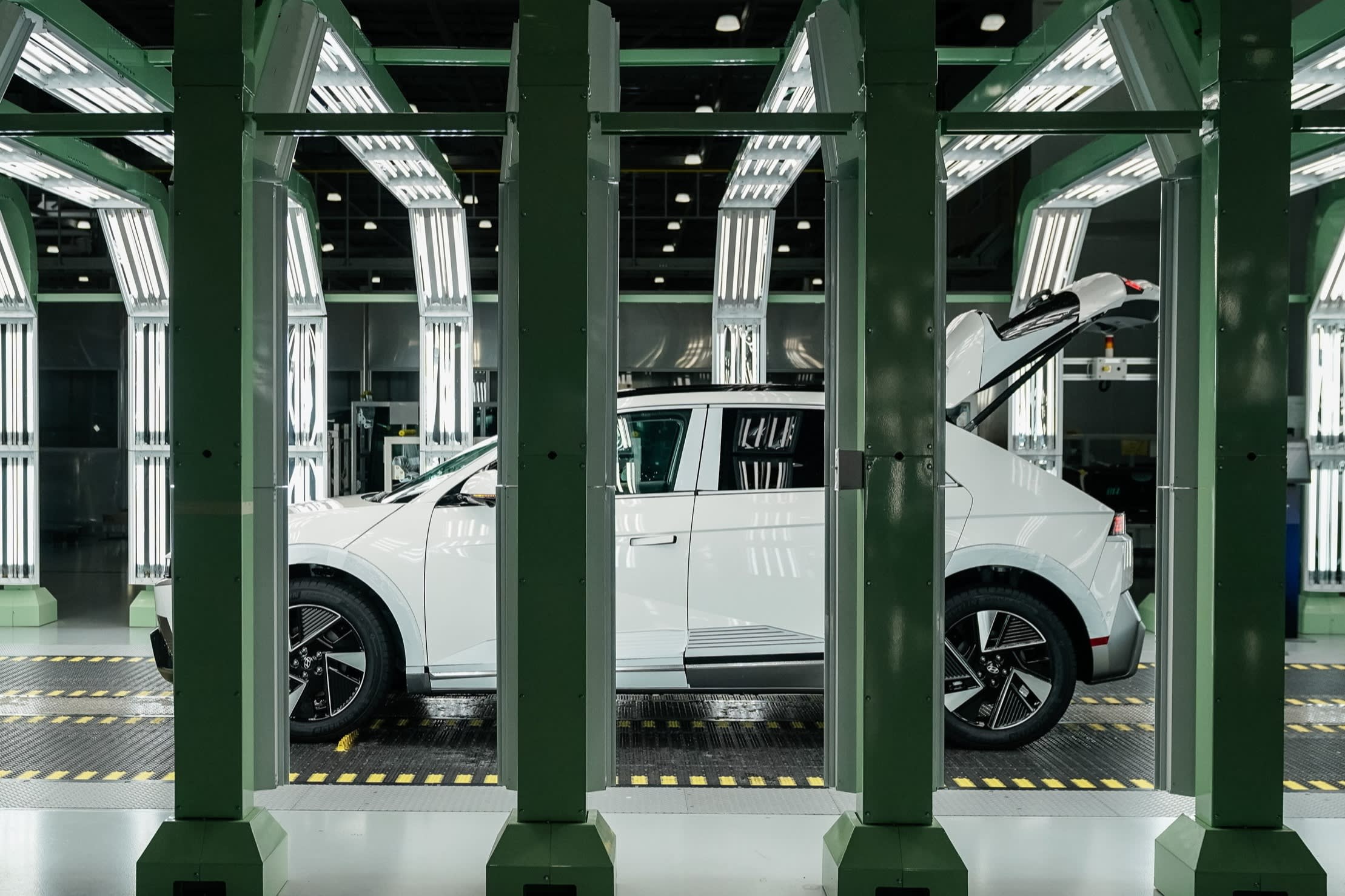
Hong said Trump’s tariffs would put pressure on Hyundai to shift more production to the US, but idling capacity at domestic plants could cause labour unrest.
Park Ju-geun, head of Seoul-based corporate research group Leaders Index, added that Hyundai’s high-profit margins had relied on an “old growth model” based on “squeezing subcontractors and suppliers”.
“That kind of past success formula is nearing the end,” said Park.
The Georgia raid suggested Hyundai had tried to apply South Korean business practices — notably a focus on “speed and efficiency at the expense of rules and principles” — to its US plants, said Lee Hang-koo.
“The US government tolerated it before, but Trump will no longer tolerate it,” he said.
Hyundai said in a statement after the raid that it had “zero tolerance for those who don’t follow the law”.
“We take our responsibility as a corporate citizen seriously, and incidents like this remind us of the importance of robust oversight throughout our entire supply chain and contractor network,” the company said.
Still, Nomura’s Hong said Hyundai’s “high-quality cars and improved brand image” over the years made her optimistic about its long-term prospects.
“Although it is being adversely affected by policy changes at home and in the US, it still has strong fundamentals,” she said.
